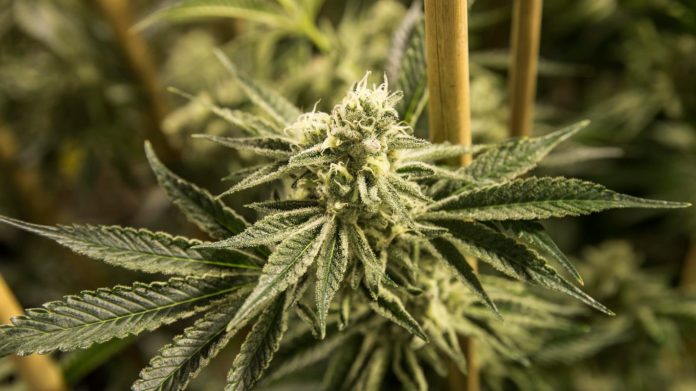Of all the health trends we’ve seen this year, CBD is perhaps the most buzzworthy, as well as the most misunderstood.
Visit your local Walgreens or CVS, and you might see CBD products lining the shelves. Even beauty stores like Ulta now sell a line of CBD products.
The problem is that as the CBD trend continues to gain momentum, misinformation has begun to spread. As a result, consumers tend to get tripped up by the terminology, and they’re not sure what to expect based on the product labels. Worse yet, people could be overpaying for products that don’t do what they think they should.
One particularly alarming point of confusion has to do with how brands name their products. You might see nearly identical-looking packages with cannabis leaves on them, with one saying hemp oil, one saying CBD oil, and another saying cannabis Sativa seed oil.
Even though these terms are often used interchangeably, they mean drastically different things. We’ll shed some light on these definitions, so if you’re ever in the market for a CBD-containing product, you’ll know what to look for.
Hemp Oil vs. CBD Oil
Both hemp oil and CBD oil originate from the hemp plant, but the similarities end there. Hemp oil comes from hemp seeds. CBD oil comes from the whole plant, including the leaves, stalks, and flowers. Because the oils are extracted from separate parts of the plant, they have different chemical makeups, and therefore different functions.
Hemp oil is a nutrient-dense oil full of omega-3 and omega-6 fatty acids. It’s used in food recipes and in moisturizers to nourish and soothe the skin. CBD, on the other hand, contains a cannabinoid called “cannabidiol.” This compound is believed to have a variety of health benefits, ranging from improving mood to reducing pain, and countless others.
Studies show that CBD helps with epilepsy1, and new evidence has emerged, indicating that CBD is beneficial for a range of clinically diagnosed medical conditions, including:
- Pain
- Inflammation
- Migraines
- Stress, anxiety, and depression
- Insomnia
- Anorexia
- Multiple sclerosis
- Schizophrenia
- Digestive disorders
- Acne
- And even cancer2
Hemp Oil
- Made from pressing hemp seeds and extracting the oil
- Excellent source of plant-based protein
- High in Vitamin E, magnesium, and omega fatty acids
- Contains little to no CBD or any other cannabinoids
- Has nutritional and industrial uses
CBD Oil
- Made by extracting oil from the hemp plant
- Helps regulate biological functions, including mood, pain, appetite, hormones, sleep, immune system, etc.
- Contains high amounts of CBD
- Can be called a variety of names, including cannabinoid oil and hemp-derived CBD oil
- Primarily used for medicinal purposes
Fighting CBD’s Stigma
The stigma about CBD comes from how society perceives marijuana and its long-standing status as a Schedule I controlled substance. However, hemp is just like any other medicinal plant, such as aloe, mint, or rosemary. It’s important to keep in mind that although both marijuana and hemp come from the cannabis Sativa family and look similar, their chemical makeup is entirely different.
Hemp contains CBD (cannabidiol), while marijuana contains THC (tetrahydrocannabinol). THC produces a euphoric, psychoactive effect, while CBD does not. When you take a hemp-derived CBD product, it’s believed that any feelings of well-being you have are a result of CBD’s effect on the endocannabinoid system (ECS). The ECS is responsible for maintaining homeostasis in the body.
For example, if you are in a car accident and injure your back, then the ECS begins going to work on returning you to “normal.” Your body’s endocannabinoids bind to the endocannabinoid receptors, where your system needs them most to fight pain and inflammation while restoring health and function
Scientists are still working out exactly how CBD-containing products support this system, but it’s believed that CBD oil can either increase your body’s endocannabinoids or prevent your natural endocannabinoids from breaking down. Another theory is that CBD binds to a receptor that we haven’t discovered yet.3
Avoid Taking an Unnecessary Hit to Your Pocketbook
Hemp oil should be dramatically less expensive than CBD oil, but when it’s falsely marketed as a CBD product, its prices might mimic CBD oil. For this reason, it is imperative that you know exactly what you’re buying.
Check the label for the CBD concentration before you pull out your credit card. Hemp seed oil should cost about the same as a bottle of high-quality olive oil.
Companies that market hemp oil and CBD oil as the same thing are deceiving the public. Sadly, it’s not unusual for someone to overpay for hemp oil, thinking it contains CBD. Not only do they lose out financially, but they don’t get to experience the benefits of CBD oil, other than a placebo.
Tips for Getting Quality CBD Oil
Navigating the CBD landscape can be confusing. Stories on the news advocate “doing your research,” but they’re not clear on what you should be looking for. Here are our top tips:
- Understanding and memorizing the terminology of what distinguishes CBD from hemp can be mindboggling. To differentiate between hemp seed oil products and CBD-containing products, check the label for CBD concentrations. If none are listed, then it’s a hemp oil product, not CBD.
- Only buy products that have been third-party tested. Look for this information on the label. You may be able to access the specific tests online, or you might need to contact the company for a copy of the lab results. The results will tell you how much CBD is in the product, whether there is any THC, and other information like the presence of pesticides.
- Check for dosages. Just knowing that the product contains CBD isn’t enough. While we can’t advise you on specific doses, we can tell you that full-spectrum CBD products tend to require smaller doses than isolates.
- Look for a batch number. Fly-by-night companies don’t usually bother with a batch number. Further, if there’s ever a recall or an issue with the product, the batch number can help you identify if your batch was affected.
- Check for other ingredients. Often, companies add herbs or other compounds. For example, a CBD product could contain melatonin or turmeric.
- Buy from reputable companies. CBD is everywhere, including malls, convenience stores, and online. Because the FDA isn’t uniformly enforcing regulations, we recommend sourcing your CBD from natural grocers or fully vetted websites.
Companies have been quick to capitalize on the “green rush,” but this mad dash for profits has left consumers scratching their heads about what they should be buying to help reap the greatest health benefits.
As you peruse the web or the aisles of a store that sells CBD products, remember to check the labels diligently. We’re still in a period of “buyer beware,” and for the health of your body and your pocketbook, it pays to know what you’re getting!
- https://www.epilepsy.com/learn/treating-seizures-and-epilepsy/other-treatment-approaches/medical-marijuana-and-epilepsy
- https://www.ncbi.nlm.nih.gov/pmc/articles/PMC6222489/
- https://www.healthline.com/health/endocannabinoid-system-2#thc








